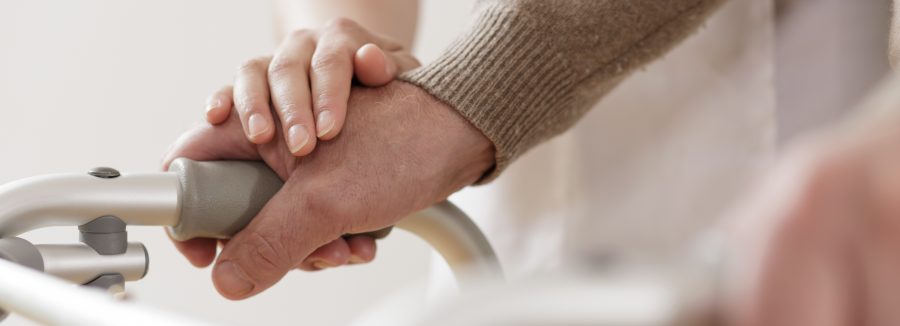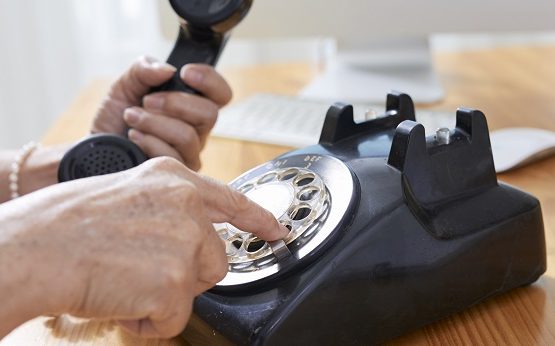How to make home safe for older adults

4 smart, simple ways to protect your loved one at home
Your home may be your haven. But it can be a pretty dangerous place for older adults. Seniors often struggle with vision, hearing and balance, all of which put them at risk for injuries.
Many also have cognitive problems, which can further interfere with their ability to move around without harming themselves.
While accidents, by definition, can't always be prevented, there's a lot you can do to make your loved one's home environment safer. Whether your elderly parent lives alone or has you or an aide keeping tabs on them, there are some precautions worth taking.
1. Clear the clutter.
Maybe your mom has lived in her current home for 50 years. Chances are she's accumulated an awful lot of stuff. Parting with belongings isn't easy, but it's important, says Joseph Gaugler, PhD, a professor and aging expert at the University of Minnesota School of Public Health.
"You want to remove as much clutter as possible," he says. Pay extra attention to anything that might be obstructing a pathway. Keep an eye out for knick-knacks that are precariously balanced at the edge of a shelf or unstable furniture that could tip over.
Bonus: Minimizing unnecessary "stuff" also makes it easier to find what you need. You don't want an older person straining to reach a sweater on the top shelf of a closet that's mostly filled with clothes they don't intend to wear again.
2. Safeguard rugs.
Falls are the number-one cause of death for people age 65 and older, according to the National Safety Council. "Many people have these lovely little rugs with tassels on the end that can just reach out and snag an ankle," says Christine Kistler, MD, an assistant professor at UNC School of Medicine who serves on the American Geriatrics Society Research Committee.
Replace them with fringe-less rugs and add some non-slip padding underneath, she suggests. Or just to tape all the edges down. Safety before aesthetics.
3. Make bathing easier.
At a minimum, installing a grab bar ensures there's something to hang onto while showering.
But a lot of older homes have bathtubs, and those can be pretty hard to get in and out of, says Kistler. If your loved one is nervous about showering or you worry they might slip, look into buying a "transfer bench" (sold online or at medical supply stores). One pair of the legs sits inside the bathtub and the other stays outside so you can sit down outside and slide over without having to step over the high tub wall.
4. Check exits.
Are there stairs? How many? If walking up and down stairs has become a challenge or your loved one seems likely to trip and fall, figure out how to make their access easier. Adding a portable ramp is one way.
For anyone who's at risk of wandering, adding an extra lock is essential. This is an issue with many dementia patients, says Gaugler. The goal is to make it more difficult for them to leave the home on their own without supervision.
Who you gonna call?
In order to stay safe, your loved one has to know what to do in an emergency. "I often say, 'If you had a fire in your home, what would you do? And sometimes they can't say 'call 911,'" says Christine Kistler, MD, a member of the American Geriatrics Society Research Committee.
If that's the case—or if your parent is prone to falls or other issues that would make it difficult for them to reach the phone—sign them up for a lifeline service so they can get help with the push of a button (on a bracelet or necklace).

Post these 4 numbers on the fridge
- 911
- Poison Control: 1-800-222-1222
- A family member or friend to call in an emergency
- The primary doctor's office number
I'm also dealing with...
Community
Did you know that there are local agencies in every community to help you find the services you need?
Use the search feature, then input your zip code to find local help.
Two popular areas of need for caregivers:

Special considerations for memory problems
Memory problems add extra considerations when it comes to making changes at home. Avoid drastic changes beyond eliminating dangerous clutter. Rearranging furniture and redecorating can be disorienting to someone with dementia, causing both mental stress as well as making it difficult for them to make their way around the home.

